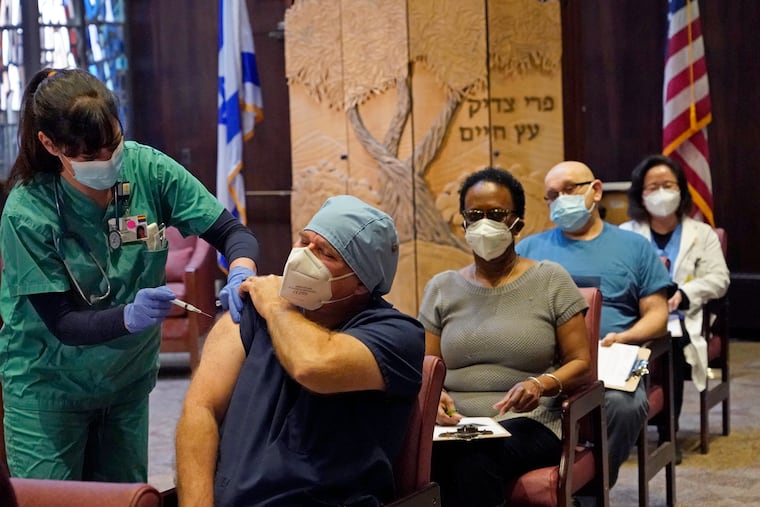The Biden administration will provide COVID-19 vaccines to pharmacies
Coronavirus coordinator Jeff Zients said starting next week some 6,500 pharmacies around the country will receive a total of 1 million doses of vaccine.

WASHINGTON — The Biden administration will begin shipping COVID-19 vaccines to U.S. pharmacies next week, ramping up vaccinations as new and potentially more serious virus strains are appearing, the White House said Tuesday.
Coronavirus coordinator Jeff Zients said some 6,500 pharmacies around the country will receive a total of 1 million doses of vaccine. The number of participating pharmacies is expected to grow as drugmakers increase production, allowing more doses to be allocated.
Drug stores have become a mainstay for flu shots and shingles vaccines, and the industry is capable of vaccinating tens of millions of people monthly.
“This will provide more sites for people to get vaccinated in their communities,” said Zients, underscoring that due to supply constraints the initial availability will be limited. A priority will be to get the vaccine to minority communities that have suffered a disproportionately high toll of disease and deaths from the virus, he said.
The partnership with drug stores was originally announced by the Trump administration last November. At that time, no coronavirus vaccines had been approved. The pharmacy program will be administered by the Centers for Disease Control and Prevention and includes major outlets such as CVS, Walgreens, Walmart, Rite Aid and Costco, as well as supermarket pharmacies
Zients also announced an increase in doses the government is shipping to states, territories and some major metropolitan areas. Those will now total 10.5 million doses across all jurisdictions, up from 10 million announced last week.
The 1 million doses being shipped to pharmacies will be on top of the 10.5 million doses being allocated to states by the week.
The White House also took action to help states pay for their pandemic response efforts. Zients said the federal government will make $3 billion to $5 billion available to states to retroactively cover certain costs eligible for reimbursement through the Federal Emergency Management Agency. Those can range from protective gear for health care workers, to deploying their National Guards, to setting up community food programs. State expenses from last January will now be eligible for reimbursement.
But Zients said states need much more financial help from Washington, pointing out that Biden’s American Rescue Plan legislation requests $350 billion for states. The counter-offer a group of Republican senators advanced over the weekend omits that line item.
When fully deployed, the pharmacy partnership will enlist about 40,000 drug stores nationwide, Zients said, or roughly six times as many locations as are participating in the initial launch. Some local jurisdictions have started to offer vaccination at drug stores, but in most places that’s not the case. Signs on pharmacy front doors say no vaccine is yet available.
The two currently approved vaccines, from Pfizer-BioNTech and Moderna, require special cold storage. But chains like CVS and Walgreens, already participating in a program to vaccinate nursing home residents, have gained experience with the special handling requirements.
Soon the Food and Drug Administration will be weighing approval of a vaccine from Johnson & Johnson, a one-shot regimen that requires only standard refrigeration.
The world at large is in a race with the virus to vaccinate as many people as possible. Worrisome mutations have been identified in the United Kingdom, South Africa, and Brazil. The UK variant spreads more easily and carries a higher likelihood of fatal disease. The South Africa variant may reduce somewhat the effectiveness of vaccines. All three mutations have been identified in the U.S.
The vaccine is free to Americans, thanks to legislation passed by Congress. To date, the government has distributed nearly 50 million doses, of which about 32 million have been administered, or more than 60%. That’s a marked improvement from just a few weeks ago.
Even with the massive snowstorm that has hit the Northeast, Zients said “all vaccine does have been available to the states on schedule.” But he acknowledged some vaccination centers have had to temporarily close due to the weather.